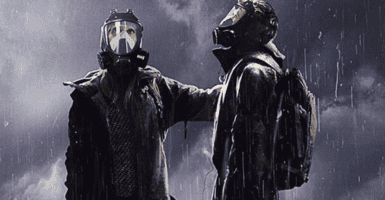The Sci-Fi Thriller On Netflix That Could Predict The Fate Of Humans
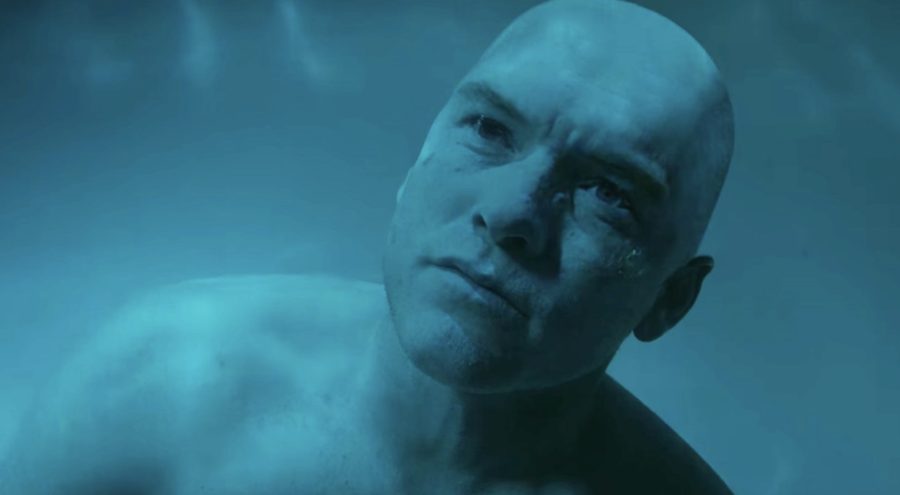
As the vastness of the universe beckons and the Earth shows signs of decay, where do we look for hope? Enter The Titan, a Netflix original that thrusts Sam Worthington into the forefront of humanity’s desperate attempt to find an alternative home.
Leaving behind his avatar in Pandora, Worthington embarks on a different kind of transformation, offering viewers a tantalizing glimpse into the future of human evolution and space exploration. If you’re eager to dive into a world where biology and space collide, The Titan might just be the journey you’ve been waiting for.
The looming threat of overpopulation on Earth and its cascading consequences form the backdrop of The Titan. Set in the not-so-distant future of 2048, the planet’s resources are severely depleted, and the clock is ticking on humanity’s search for a new home.
It’s an era where overpopulation isn’t just a looming threat, but a palpable reality. Food is scarce, living conditions are deteriorating, and tensions rise as humanity grapples with the realization that Earth’s days as a habitable planet are numbered.
In The Titan, humans are forced to leave the planet because of overpopulation.
Amidst this chaos emerges the ambitious Titan Program, a military project that aims to terraform Saturn’s moon, Titan, to make it suitable for human habitation. However, instead of modifying the moon to suit humans, the project focuses on modifying humans to suit Titan.
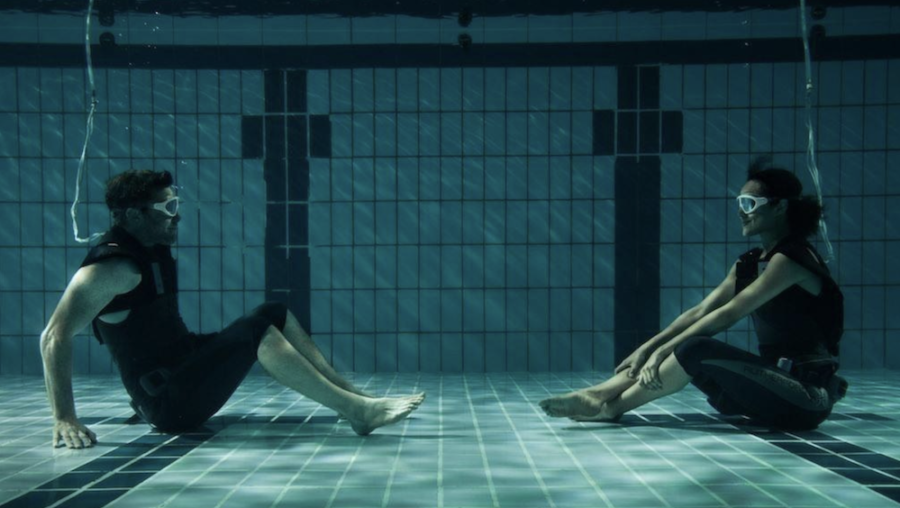
Enter Rick Janssen, portrayed by Sam Worthington. A decorated Air Force pilot with an impeccable service record, Rick volunteers for the program, driven by the hope of securing a future for his wife, Abigail (Taylor Schilling), and their son. As one of the selected few, Rick undergoes radical genetic experiments that start altering his physique and capabilities to make him more adaptable to Titan’s harsh environment.
Sam Worthington delivers a captivating performance, encapsulating Rick’s internal struggle as he grapples with the physical and psychological effects of the transformation. He’s no longer just a man, but a hybrid, caught between his human past and an uncertain extraterrestrial future.
Taylor Schilling, as Abigail, is a medical researcher and serves as our anchor to humanity. Her love for Rick and concern for their family puts her at odds with the program’s overseer, Professor Martin Collingwood, played by Tom Wilkinson.
Collingwood’s fervor and unwavering belief in the mission contrast sharply with Abigail’s growing apprehension. She starts to question the ethical boundaries of the project, especially as she witnesses firsthand the harrowing changes and dangers it poses to the participants, including her husband.
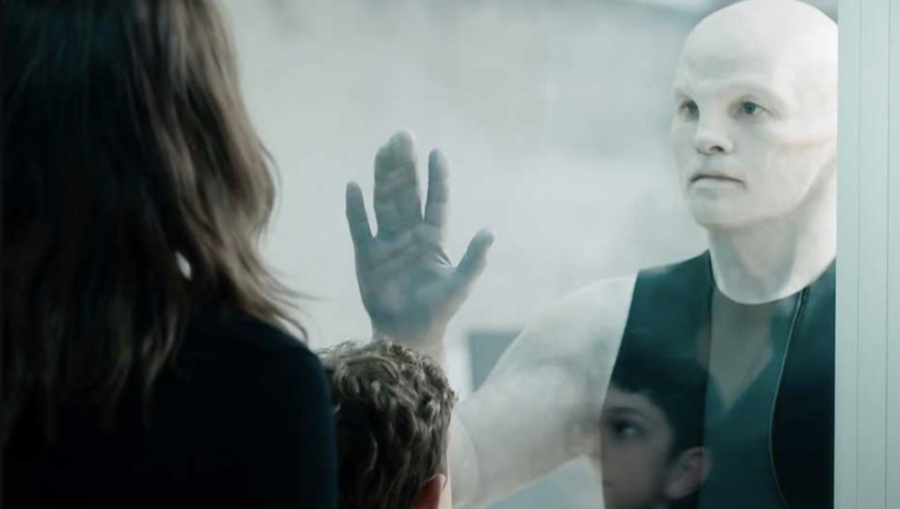
The story weaves together themes of sacrifice, the ethical limits of science, and the lengths humanity might go to ensure survival. As the experiments intensify and the transformations become more profound, we’re left pondering the cost of such evolution and whether the ends can truly justify the means.
Through the stellar cast and gripping narrative, The Titan explores the blurred lines between human ambition and hubris in the face of existential threats.
Overpopulation And Genetic Engineering Are Potential Future Issues
Overpopulation on Earth presents a multifaceted challenge, pushing our planet’s resources to their limits and threatening the delicate balance of our ecosystems. As the human population continues to swell, the demand for food, clean water, energy, and space intensifies. Forests are razed for agriculture, leading to biodiversity loss, while cities expand exponentially, often without sustainable planning.
These changes result in increased greenhouse gas emissions, contributing to global warming and the consequent rise in sea levels, extreme weather events, and dwindling freshwater resources. The compounded effects of overpopulation are leading us to an alarming tipping point where the planet might no longer sustain human life at its current rate of growth.
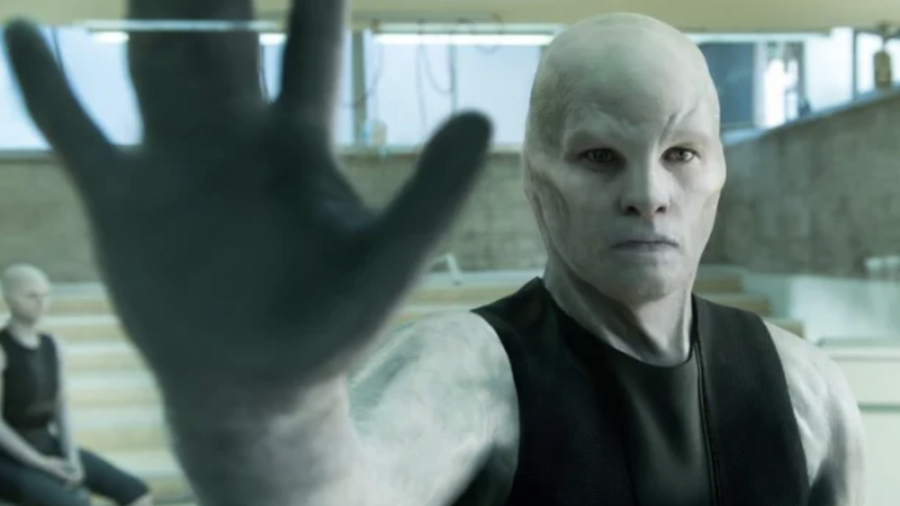
Given these impending challenges, the concept of relocating to another planet isn’t merely the stuff of science fiction but becomes a consideration for long-term human survival. Celestial bodies like Mars or moons such as Titan are being explored as potential habitats.
The idea is to terraform these planets or moons, modifying their atmospheres, temperatures, and surfaces to make them habitable for humans. Alternatively, as portrayed in films like The Titan, there’s the notion of adapting humans to live in extraterrestrial environments through genetic modification.
Overpopulation on Earth could mean venturing to other planets and worlds
While such endeavors promise a fresh start, they also come with profound ethical, biological, and technological challenges. The pursuit of a new planetary home prompts us to reimagine humanity’s future and our place in the cosmos.
In an age where Earth’s limitations become increasingly evident, films like The Titan serve as both cautionary tales and inspirations, pushing us to contemplate our future. Whether through innovation, adaptation, or exploration, the pursuit of sustainability — be it on our home planet or beyond — remains a testament to human resilience and our never-ending quest for survival.
The imaginative worlds of cinema remind us that while the universe may be vast and mysterious, our responsibility to cherish and preserve life is unequivocal.




